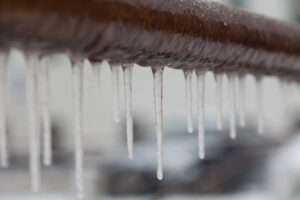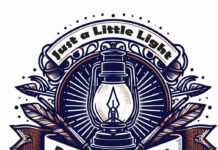WICHITA, Kan. – Feb. 4, 2021 – With the coldest temperatures of the season in the forecast this weekend and next week, and families in a work/school from home routine, frozen or burst pipes can be a frustrating disruption. With periods of brutally cold weather, pipes are at risk of freezing due to sudden temperature drops, poor insulation or incorrect thermostat settings.
“Freezing temperatures put your pipes at risk, and recovery can be difficult and costly,” said Dan Scroggins, managing director of AAA Insurance. “Copper, iron and plastic pipes can burst. A crack as small as 1/8-inch can spew up to 250 gallons of water per day, causing flooding, serious structural damage, and the potential for mold.”
With two months of winter left and more frigid weather likely in the weeks ahead, AAA offers the following tips to prevent pipes from freezing and bursting and for managing home insurance claims should the problem occur:
Preventing Frozen Pipes:
Make sure everyone in your family knows where the water shut-off valve is and how it works.
Insulate pipes in your home’s crawl spaces and attic.
Seal gaps around pipes that allow cold air inside. You also should look for air leaks around electrical wiring, clothes dryer vents and pipes. Use caulk or insulation to keep the cold out.
Disconnect garden hoses. If possible, use an indoor valve to shut off and drain water from pipes leading to outside faucets. This reduces the chance that pipes inside the house will freeze.
If a freeze is expected, consider allowing warm water to drip slightly overnight, preferably from a faucet on an outside wall. Even a slight trickle may keep your pipes from freezing.
When there is the possibility of a freeze, don’t turn down the thermostat at bedtime. Instead, maintain the same setting day and night. Drops in temperature, which are more common overnight, could freeze your pipes.
Open cabinet doors. This will allow heat to reach uninsulated pipes located under sinks.
If you’re going on vacation or leaving your home for an extended period of time, consider maintaining minimal heat to prevent freezing.
Recovering from Frozen Pipes:
If you turn on your faucets and nothing comes out, your pipes are likely frozen.
You may be able to use a hair dryer to thaw a frozen pipe. Begin by warming the section of pipe closest to the faucet, then work your way out toward the coldest part of the pipe.
Never use a hair dryer or any electrical appliances in areas of standing water. You could be electrocuted.
Never try to thaw a pipe with a torch or other open flame. It could cause a fire.
If your water pipes have already burst, turn off the water at the main shutoff valve in the house, leave the water faucets turned on, and call a plumber.
Managing Home Insurance Claims
Make a list of the damaged articles and take photos.
Save the receipts for what you spend—including additional living expenses if you must leave your home until repairs are completed—and submit them to your insurance company for reimbursement.
Standard homeowners policies will cover most of the kinds of damage that result from a freeze. For example, if house pipes freeze and burst or if ice forms in gutters and causes water to back up under roof shingles and seep into the house. You would also be covered if the weight of snow or ice damages your house.
If your home sustains water damage, it is important to make sure that it is properly dried and repaired to prevent any potential problem with mold. Remember, mold cannot survive without moisture.
Check with your agent or insurance company to be sure of what your policy covers.
“Prevention is the key to protecting your home this winter—especially with more families at home due to COVID-19 closures. A few simple steps can help you avoid a frozen pipes nightmare,” continued AAA Insurance’s Scroggins. “For added peace of mind, it’s a good idea to make sure you have adequate homeowners insurance should the situation arise.”
To find out more about homeowners or renters insurance, contact your local AAA insurance agent, call 866-AAA-4YOU or visit www.aaa.com/insurance.
About AAA
AAA provides automotive, travel, and insurance services to 61 million members nationwide and nearly 347,000 members in Kansas. AAA advocates for the safety and mobility of its members and has been committed to outstanding road service for more than 100 years. AAA is a non-stock, non-profit corporation working on behalf of motorists, who can now map a route, find local gas prices, discover discounts, book a hotel, and track their roadside assistance service with the AAA Mobile app (AAA.com/mobile) for iPhone, iPad and Android. For more information, visit www.AAA.com.





